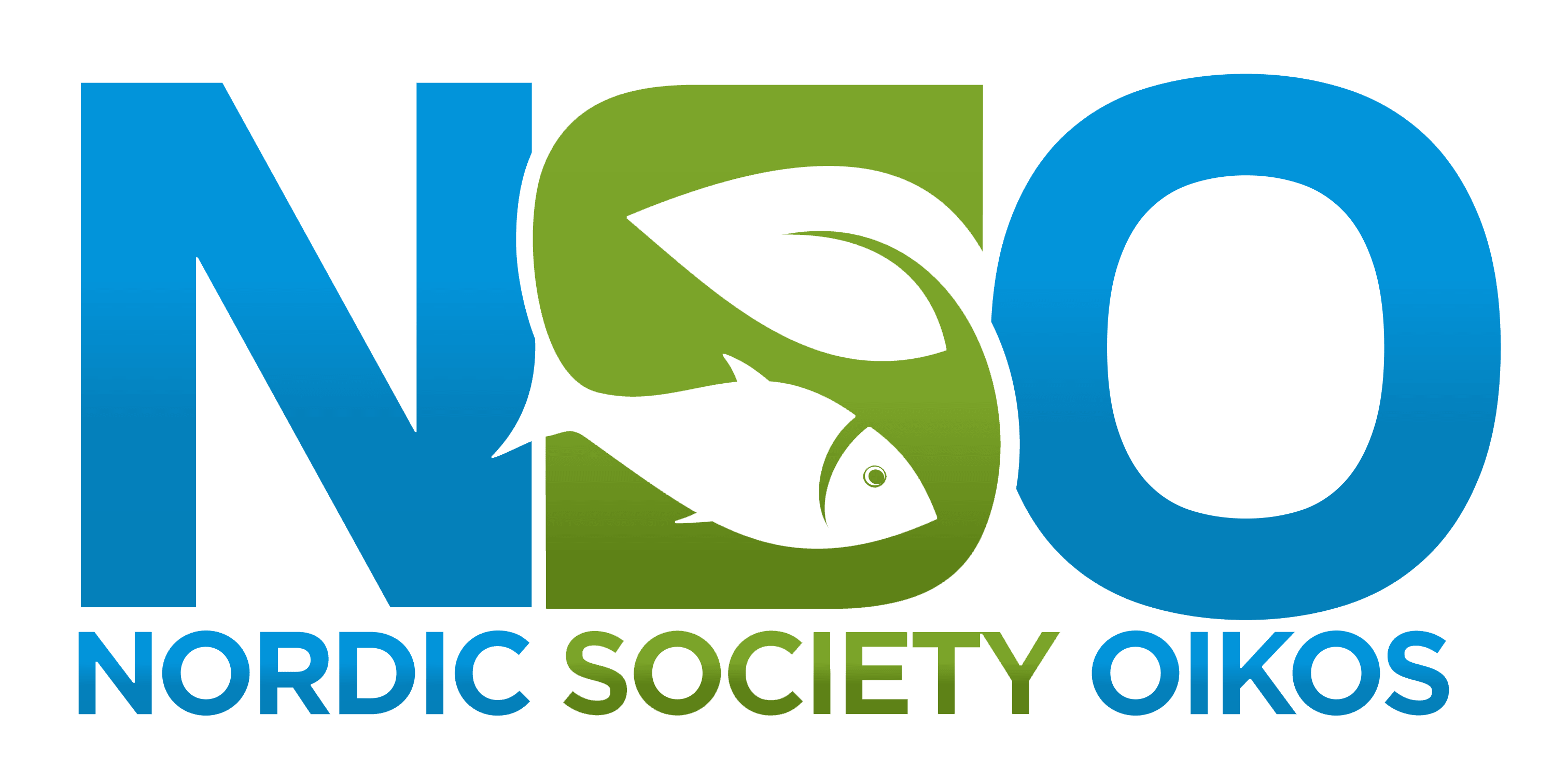Thematic Workshops at Swedish Oikos Meeting in Gothenburg 2023.
1. Incorporating Arctic grazers into ecosystem models: a way forward
Organizer: Robert Björk and Johan Olofsson
Presenter: Fredrik Lagergren, Lund University
Length: 1.5 h
Reindeer can shape tundra vegetation by reducing the biomass of preferred forage species such as lichens as well as mitigating climate driven vegetation changes, such as the upward shift of lowland plants and shrub expansion. Yet, only a few efforts on incorporating herbivore effects into ecosystem models exist. Here, we will present a newly developed grazing module and result from some simulations using the LPJ-GUESS model, which is a 2nd generation Dynamic Global Vegetation Model. The overall objective of the workshop is to share knowledge among grazer researchers and model developers, inform on the ongoing research, and evaluate current developments using the LPJ-GUESS model and identify a way forward. Ultimately, the workshop could aid planning future field studies to serve the needs of models and result in the development of mechanistic model with a stronger empirical foundation.
Register to:robert.bjork@gu.se
2. SBDI user workshop - How to publish your metabarcoding data
Gothenburg, 30. January, part of Oikos meeting 2023, 1.5 h
Metabarcoding analyses of environmental and genomic DNA have become a standard method in biological monitoring and research. Currently, there are several infrastructure initiatives developing standards and data repositories to make metabarcoding data FAIR (Findable, Accessible, Interoperable, and Re-usable). During this workshop, participants will learn how to process (eDNA) metabarcoding output into species occurrences, and to publish these using tools provided by the Swedish Biodiversity Data Infrastructure (SBDI), the Living Atlases (LA), and the Global Biodiversity Information Facility (GBIF). Our aim is to support researchers to contribute their molecular data to the biodiversity research community.
The workshop will include presentations, demos, and discussions. No hands-on work is planned, but we will distribute our online tutorials and example input files which can be exercised individually after the workshop. The workshop is organized by the Swedish Biodiversity Data Infrastructure (www.sbdi.se), the national access point for open biodiversity data in Sweden. SBDI provides data and analysis services for research on biodiversity and ecosystems.
Organizer and registration: The Swedish Biodiversity Data Infrastructure (www.sbdi.se). Matthias Obst, Gothenburg Global Biodiversity Center, email: matthias.obst@marine.gu.se, tel: 0766183827.
Target groups: Ecologists running eDNA and metabarcoding projects as well as research engineers and bioinformaticians working with analysis of eDNA and metabarcoding data.
Prerequisites: Participants should have either background or interest in analysis of eDNA and metabarcoding data
Tentative program
Time | Topic | Speaker |
[15’] | Welcome, and introduction to SBDI, Living atlases and GBIF | Matthias Obst (University of Gothenburg) |
[15’] | Overview: Access and publish genetic data with SBDI | Anders Andersson (SciLife Lab / KTH Royal Institute of Technology) |
[15’] | Demo and discussion: Publishing your raw reads and sample metadata | Maria Prager (Stockholm University) |
[5’] | Paus | Everybody |
[20’] | Demo and discussion: Denoising your reads into Amplicon Sequence Variants (ASVs) | Daniel Lundin (Linnaeus University) |
[20’] | Demo and discussion: Publishing ASVs and metadata to the SBDI Bioatlas & GBIF | Maria Prager (Stockholm University) |
[5’] | Wrap up, feedback, and online tutorials | Matthias Obst (University of Gothenburg) |
SBDI user workshop - Modelling the distribution of alien species in Sweden
Gothenburg, 30. January, part of Oikos meeting 2023, 1.5 hours
Summary: The number of alien species in terrestrial, marine and freshwater ecosystems is accumulating quickly and requires a systematic response and coordination between public authorities, the research community, and the private sector. Today new monitoring methods for alien species (e.g. eDNA, citizen science, etc) can be coupled with predictive analytical approaches such as Species distribution models to provide biological forecasts for distribution of alien species and invasive hotspots. Currently there are several initiatives which model invasive alien species in Sweden using new and conventional observation methods. Although these programs analyse very different (i.e. marine, freshwater, brackish) environments, there is still large potential to share data, tools and know-how. The goal of this workshop is to bring these groups together, understand the various modelling approaches and its underlying data and methods, to make sure that results become FAIR (findable, accessible, interoperable, and reusable). Relations to existing digital research infrastructures such as SBDI and SND will be discussed. The workshop is organised by the Swedish Biodiversity Data Infrastructure SBDI, the national access point for open biodiversity data. SBDI provides data and analysis services for research on biodiversity and ecosystems.
Organizer and registration: The Swedish Biodiversity Data Infrastructure (www.sbdi.se). Matthias Obst, Gothenburg Global Biodiversity Center, email: matthias.obst@marine.gu.se, tel: 0766183827.
Target groups: Ecologists and modelers
Tentative program
Time | Topic | Speaker |
[5’] | Welcome, and introduction to SBDI and current modelling activity | Matthias Obst (University of Gothenburg) |
[15’] | Modelling the risks of Elodea nuttallii and Dreissena polymorpha spread in Sweden | Carlotta Meriggi & James Kurén Weldon (Swedish University of Agricultural Sciences) |
[15’] | Species distribution models as a tool for early detection of the invasive Raphidiopsis raciborskii in European lakes | Carlotta Meriggi (Swedish University of Agricultural Sciences) |
[15’] | Models and data for surveillance of mosquitos and zoonotic diseases in Sweden | Gunnar Andersson (Swedish Contingency Agency) |
[15’] | Predicting invasive hotspots in the Swedish coastal zone | Matthias Obst (University of Gothenburg) |
| Discussion of species observation data, monitoring methods, alien species checklists, environmental data, algorithms, tools, documentation, and data/modelling platforms | Everybody
|
[25’] | Wrap up, feedback, and online tutorials | Matthias Obst (University of Gothenburg) |
4. Data visualization
Organizer and registration: Anne Bjorkman, Anne.Bjorkman@bioenv.gu.se,
